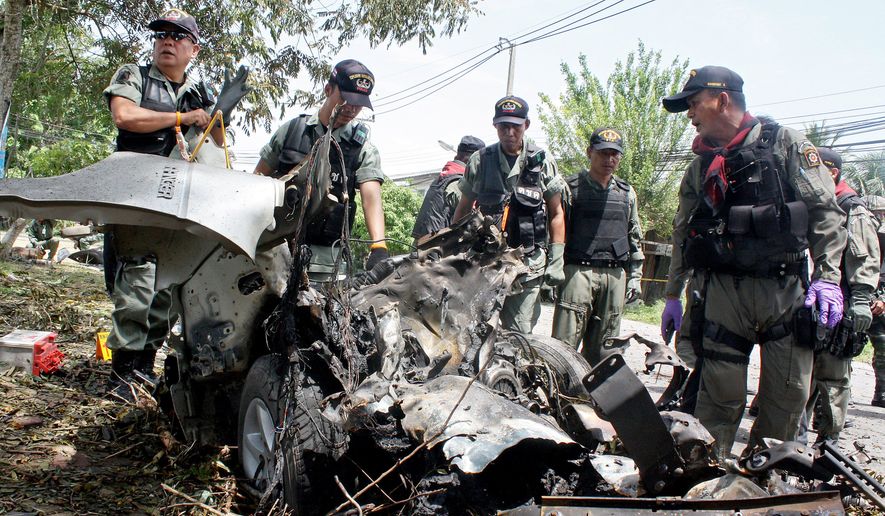BANGKOK — Thailand’s military, unable to win a grinding, 15-year-old war against Muslim guerrillas in three restive southern provinces, is now considering direct talks and “special administrative arrangements” in a bid to resolve one of the region’s bloodiest and longest-running insurgencies.
The military-dominated government, in power since 2014, has established a Peace Dialogue Panel stocked with several top army generals and Prime Minister Prayut Chan-ocha and appealed for direct talks with the Malay-Thai rebels.
Since 2004, Muslim separatists in the three provinces bordering Malaysia have been waging a fierce insurgency that has claimed more than 7,000 lives. The government’s recent moves signal that Bangkok no longer thinks it can win the fight on the battlefield alone.
“I do not demand a cease-fire first before the dialogue,” Gen. Udomchai Thamsarorat, head of the peace panel, told reporters last week.
“Autonomy or special administrative arrangements — yes, we can talk and we can compare it, or we can map it out if we believe [Mr. Chan-ocha’s] instruction about decentralization for people to feel comfortable under the government,” said the general, outlining a settlement that Thai leaders long resisted.
Academics and researchers said greater autonomy would allow southern Muslims to run their communities on such issues as school curriculums, use of the Malay language instead of Thai, family legal decisions and other local concerns.
But majority-Buddhist Thailand will not have true Muslim autonomy anytime soon, and the suggestion may be an empty promise to pacify insurgents, some warn.
“Gen. Udomchai Thamsarorat has failed to progress with peace talks, which to be meaningful must include the main [separatist] perpetrators of the violence, the Barisan Revolusi Nasional,” a Nation newspaper editorial said last week. “Udomchai is simply going to have to concede something to the BRN as a lure.”
Gen. Udomchai did not elaborate on how autonomy might function during his Jan. 11 press briefing but released a statement that said Thailand would “promote” the “goal of power-sharing and decentralization … without any conditions leading to territorial separation.”
The seemingly stalemated guerrilla war has bloodied Thailand’s southernmost provinces of Pattani, Narathiwat and Yala, and parts of Songkhla. In the latest attacks, rebels killed a police sergeant on Jan. 13 when six insurgents on three motorcycles rode up to a guard post during lunch in Narathiwat province.
Three days earlier, rebels disguised in military uniforms walked into a Pattani provincial school and shot dead four armed defense volunteers who reportedly had Muslim names and were supposed to be protecting nearby teachers and students.
The guerrillas greeted the seated volunteers, said they were inspecting the school and then opened fire.
The military has talked peace before with leaders of more moderate rebel groups. But the armed BRN insurgents, who stage bombings, assassinations and other hit-and-run attacks, refused to participate in the talks.
The guerrillas receive sanctuary by crossing the porous southern border into Muslim-majority Malaysia, where politically powerful Islamists occupy a northern sliver among Malaysia’s larger, more moderate and diverse society. Malaysia’s government also has suggested greater autonomy for southern Thailand.
The peace feelers have emerged as Mr. Prayuth tries to schedule national elections. He postponed promised dates, including a now-defunct Feb. 24 poll that has yet to be rescheduled.




Please read our comment policy before commenting.